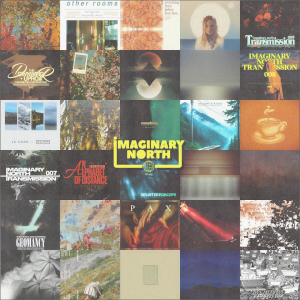
(08.10.08) Native State Records was a west coast electronic music label that explores the boundaries between downtempo, idm, dub, and chillout founded by Evan Marc. Evan recently phased out Native State Records and launched Somnia. Somnia releases ambient, electronic, minimalist, modern classical, electro acoustic, and “other” recordings. The first album released on Somnia was Caverns of Time by Evan and I was immediately struck by its emotional (and impressive) depth. If Caverns of Time represented the direction that Evan wanted to explore throughSomnia, then I was along for the ride. Since then, Somnia has released music from Emanuele Errante, juxta phona & offthesky and an album by both Evan Marc and Steve Hillage.
Igloo :: You’ve primarily lived in the west coast. In fact, you used to live a few blocks from me in San Diego and you’ve also lived in Oregon but recently moved to Hawaii. There are many reasons to live there but I wanted to hear why you moved to Hawaii?
Evan Marc :: I actually moved back to Hawaii. About 10 years ago I lived in Kona on the big island of Hawaii and fell in love with this land and had decided that there was no reason to leave this island until this itch to compose and make music came over me. I left this island with the intent and purpose of going back to the mainland, building a career in music and getting myself back to the point where I could move back to the big island of Hawaii. I had a weird kind of revelation coming back from a festival around March of this year where I thought, “Oh my God! I have these labels. People are paying attention to what I’m releasing, they’re buying music, I’m supporting myself with my art. I can actually go back to Hawaii now.” I decided it was time and ended up back here.
Igloo :: As a musician in this age of the internet you can, of course, distribute your music on the web easily but does living in Hawaii pose any problems as far as performing your music?
Evan Marc :: It does a little bit. I have to change my touring habits instead of flying out for the weekend and playing a show and then flying home. I have a tour coming up in October and November which is 15 days of touring: 10 or 11 dates compacted into those 15 days. I’ll fly over into the mainland and do a bunch of shows and then not play any shows for a couple of months. Because of the cost of flights-which are incredibly high right now –it’s changed the way that I tour in that I can’t head out for a show every weekend. I have to consolidate my touring into specific blocks of time.
Igloo :: All the artists on Native State have a very lush sound that seamlessly blends the organic and the artifice and your label tends to focus on electronic music that is influenced by dub ambient and glitch but some how it all comes out sounding very natural. Was that an aesthetic choice when you started the label or was that something that evolved organically?
Evan Marc :: When I started Native State I wanted to provide a bridge between what was happening in the chillout scene and the IDM/program/laptop-based scene and there didn’t seem like there was that much crossover going on. There was a lot of really heavy IDM records coming out and then a lot of soft, floaty, atmospheric, dubby, chillout music but nothing that really captured those two things so the label was started to provide that bridge. It just seemed that the artists that seemed to have relevance to both of those genres by nature tended to work more organically or tried to utilize their laptops or their tools that they were using to create an organic type of sound.
Igloo :: I’m always impressed when anyone begins a label focusing on electronic music simply because there are thousands and thousands of labels out there already. You touched on this briefly, but what was the point that you said “Okay, I have this interest in these specific genres of music and I want to make a record label out of it.” That’s a daunting task.
Evan Marc :: It was because of my Elementary Particles release. I had done my first album with Waveform and for various reasons I decided that I did not want to work that label for the next release. I wanted to do it myself. I had always fancied that I would start a label at some point in my career and just did it.
Igloo :: As I said, there are thousands of electronic music labels yet Native State stands out in the crowd and I think that’s because you have an amazing roster of artists who put out come incredible music but so do lots of other labels. So aside from the quality of the music, what do you think kept Native State from being lost in an already crowded market? Was it the album artwork? The compilation CDs? Marketing? What was your secret?
Evan Marc :: That’s a hard one to answer because from my perspective we’ve struggled a lot. We’ve been a little bit too glitchy for the psychedelic/chillout people and been a bit to chillout for the glitchy people. I haven’t gotten much positive critical response that allows me to gauge whether the label is successful or not. I guess I’ve run Native State because I’ve met artists I’ve believed in and I thought had something to say so when I find somebody that has the message, or has the sound, has something unique, has a point of view and doesn’t maybe necessarily have the tools that they need to get that out there, if I have the ability to help out at that time, then I do. I’ve never really thought so much about marketing and where it fits and all that kind of stuff. I’ve always followed my gut about what I wanted to release.
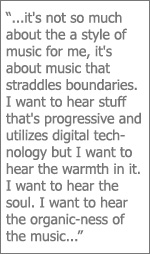
Igloo :: Some of the people I really enjoy are on your label such as Shen, Nalepa and Rena Jones. You said you were looking for like minded individuals to feature on the label. What was it about those three people, for example?
Evan Marc :: They’re all people I’ve had relationship with. Nalepa and I used to work at a company called M-Audio. We both worked in the tech support division. He sat two desks away from me. He’s somebody I developed a relationship with. After I left M-Audio I moved to Canada and Noah Prada Shen lived down the road from me. We had mutual friends so we hit it off. At that point in time he was the only person I knew who was really into techno. We started sharing techno records and all that kind of stuff so I released his music. Rena Jones I met through Maer at Dub Beautiful who had done one of the first-ever Bluetech shows in the Bay area and has consistently supported me and whoever was touring with at the time when we came through San Francisco so there was kind of a family connection there.
Igloo :: You’ve got a lot of different monikers. There’s Evan Marc, there’s Evan Bartholomew, there’s Bluetech. Why the different monikers and where did the name Bluetech come from?
Evan Marc :: That’s a question I’ve been asked a lot. I’m not sure I really have an answer for it. It just made sense at the time. It was the right name for the right time. I’m kind of feeling that it’s maybe the wrong name at this time. It feels dated to me as a name. It also has the word “tech” in it, which by nature defines what the music is going to be so I’ve been actually in a concerted effort to take my own name again. My first name and middle name are for the techno projects and for the dance oriented music. My first name and last name is for all the other sort of stuff that I’ve been producing, specifically because taking my own name is almost an energetic ownership of the music I’m putting out. Bluetech was a genre thing and taking my own name allows me to write whatever I feel like writing whenever I want to write it, regardless of the genres and regardless of what’s happening in music. It’s me. It’s my name. It’s out there if people want to check it out. The problem is that the name Bluetech has definitely extended far beyond it’s own name has so getting people to realize that Evan Bartholomew music is going to be replacing the Bluetech moniker has been difficult.
Igloo :: Tell us about Somnia. What kind of label is it and why has it become so important to you?
Evan Marc :: Somehow Native State got typecast as a Psy(Trance) label and we have been unable to get magazines and distributors because of affiliations with the trance scene even though it has a wide range of places it touches down on electronic music. It’s also very specifically electronic. Somnia was for me a way to think about things differently. It was approaching music from an energetic base rather than an aesthetic base. Instead of just about the style of music that I was releasing, it was about embracing the music industry in a different way. Everybody’s talking about how nobody buys CDs, it’s the death of the industry, woe is me. And I thought, “You know, maybe people want the product presented differently.” I started Somnia with my partner Ray (Massini), who does all the artwork. The intention was to make something that was a piece of art. You’re not just buying a plastic disc in a plastic case with plastic coating over it. We make very limited edition runs on recycled paper with recycled inks. The seams are shown. The packaging is sealed in wax and they’re numbered limited editions. It’s very much about creating a piece of art. It’s limited, it’s numbered, it’s not made for made for mass consumption, it’s just made to be what it is, as many copies as it is and then no more. The intentions of the label was not specifically to create a sound but more of an artistic aesthetic, something that was organic, something that was ecologically responsible and not trying to just sell thousands of copies of an album but just making enough to make it special for the people who want to buy a CD.
Igloo :: I’m not saying it’s huge like, say, Warp Records, but I do think it has enough presence that there are people who are into electronic music that know about the label. Why did you decide not capitalize on Native State’s brand and take the stuff that you’re doing on Somnia and just release it on Native State and expand the definition of what the label is?
Evan Marc :: For me Somnia is very much an extension of Native State. It’s an extension of what I built there. I’m listening to a lot of different types of music now: prog rock, modern classical, all the kind of stuff I’m playing on my podcast. Native State is a very electronic label. The name Somnia allowed to create something that gives me freedom to explore all there other things. I’m never going to sell 100,000 records on Somnia because we’ll never print that many records.
Igloo :: You said that Somnia is influenced by prog rock. Is this something that you’ve always wanted to do or is this a new discovery or did you rediscover an appreciation for that kind of music?
Evan Marc :: I’ve always been involved in all these kinds of music. For me, the act of creating Somnia was like doing a 180 in a way that I related to the music industry at large. After knocking on doors and all of these tours and trying to sell records to make Native State float and trying to get reviews and all that kind of stuff I just went, “You know what? I’m not going to do it about the business anymore. I’m going to create something that is exactly the way I want it to be.” We only make 777 copies. Each one is hand made. I put love and attention into every single CD that goes out the door. I sign it. I number it. Somnia is just changing my response to the music industry because the industry is in a state of incredible upheaval and turmoil. Somnia was not only an aesthetic decision but it was also a philosophical decision. It was an emotion decision. It was an ecologically responsible decision. It’s a way of approaching this whole business of releasing music and getting stuff out there in a totally different way. Anybody who feels the need to sell hundreds of thousands of records and be a rock star is not going to come to Somnia looking for a record deal. Anybody who is released on the label is going to be somebody who has kind of the same philosophical bent and is okay with limited releases and going about things in a different way.
Igloo :: The first release on Somnia was your Caverns of Time album, which is evocative of some Brian Eno‘s earlier ambient works such as On Land.
Evan Marc :: Caverns of Time is a kind of deep, ambient thing. Secret Entries Into Darkness is maybe ambient/electro? IDM? I’m not sure what words would describe it best. It’s got the expansive feeling that Caverns of Time does but there’s a lot more electronic construction underneath.
One of the albums is not actually a Somnia release. It’s a self-release by an artists named Chris Thompson. It was released on recycled paper. He had it antique letter-pressed. It’s a really beautiful CD. When I heard it I was instantly impressed. Native State was tying together different kinds of electronic genres and Somnia is going to be looking at bridging different gaps and Chris Thompson’s disc is quality electronic music and quality jazz at the same time. I thought it was awesome and I purchased a bunch of copies and I wanted to sell them web site and help get his name out there and let other people see what he was doing.
Igloo :: I spoke with Taylor Deupree from 12k back in July and we talked about the fact that he only releases 1,000 copies of CDs on his label. Taylor said that one of the reasons he decided to put out limited editions was because he wanted to reinforce the idea that each album from 12k is special. You’ve taken a similar approach by only releasing 777 copies of each release on Somnia. Like Taylor, you’ve also made releases on Somnia available for purchase in a digital format through vendors like iTunes. How do you square that notion of having limited physical releases with digital releases that have no limitations as far as distribution goes?

Evan Marc :: 12k was a huge inspiration for me. I loved Taylor’s work ever since Protoype 909 and Human Mesh Dance. I’ve been a huge fan of what he’s done with his template for 12k and the kind of Pete Namlook‘s Fax aesthetic were the labels I was looking to when I was putting Somnia together. Unfortunately in this day and age, the second I put out a CD within two days, maybe less, a “scene release,” a high quality free download torrent of anything I put out goes up online. My policy with digital music is that if people want MP3s and don’t want to own the CDs, I’d rather have the option for them to support the label if they want to. The releases are about the physical packaging. It’s about the quality we put together but if people don’t want physical packaging and they’re only into MP3s I’d rather that people who want to support the label are able to put money back into the label, which goes back to the artists who are recording for the label, rather then their only option is to download a pirated copy of our music.
Igloo :: There are obviously differently styles of music on Somnia but what was the aesthetics of the kind of music you wanted to release?
Evan Marc :: I would say that if there is an aesthetic it’s an aesthetic that matches physical aesthetic of the packaging, which is the stippling artwork that Ray does and organic paper or paper with fibers in them. Even is the music is explicitly electronic I really look for stuff that has an organic texture to it. It’s paramount to me that no matter how brilliant an electronic album is, if it doesn’t have that warmth and that organic texture to it, then it maybe isn’t the best fit for Somnia. Whether it’s a pure drone album or something that’s more uptempo, it’s not so much about the a style of music for me, it’s about music that straddles boundaries. I want to hear stuff that’s progressive and utilizes digital technology but I want to hear the warmth in it. I want to hear the soul. I want to hear the organic-ness of the music as well.
Igloo :: How does the music that you’ve done for Native State or, for that matter, Psybooty, inform the music you release on Somnia?
Evan Marc :: Part of the beauty of the limited edition, despite that fact that it’s available through iTunes for whoever wants it, is the fact that when I’m thinking about a release I’m thinking that 777 copies of this CD is all that we’re making. It completely removes for me and the studio the sense of “Oh, my God, I have to please this label that I signed with and I have to sell X amount of units to support X amounts of shows and X amount of radio play.” All those concerns for me as an artist who is recording for Somnia are thrown out the window. I get to decide what story I want to tell that will only be held and contained in 777 of these special packages. As an artist I’m able to remove the marketing censor. What if people don’t like this? What if it doesn’t sell? What if my fans don’t like it? All of that stuff goes out the window and I’m able to just write, to express and idea. Stretch it out, see where it goes, follow it down a rabbit hole and end up somewhere totally unexpected and be okay with that and be able to have it be what it is.
I think that if you took my work with other labels and stretched it out and looked kind of at the holes in between the notes, that’s where my work for Somnia exists. I feel the albums that I’ve done as Bluetech are in the more traditional album template: you have nine or 10 songs, they’re roughly five to seven minutes a piece. They some how need to fit into the radio format. It’s not like I’m writing pop music but it is playing according to the rules of electronic elements. Somnia allows me to take a single piece of music and go “Okay, I’m actually going to stretch this out over 60 minutes an it’s going to have seven movements.” I don’t have to truncate. I don’t have to edit myself. I’m able to completely go out on that tangent and see where it leads me. The music I’ve done for Somnia is the same as the music I’ve done for other labels, just stretched out. I’m given absolute freedom to move in either direction with those pieces.
Igloo :: On Dreamtime Submersible you collaborated with Steve Hillage. Steve has a long history with prog rock and electronic music going back to his days with Egg and, more notably, with Gong. How did the collaboration with Steve on Dreamtime Submersible come about?
Evan Marc :: My genesis in electronic music is definitely through The Orb and soon after The Orb I discovered The Fire + Water album by System 7. In both of those projects Steve Hillage was instrumental in the production of The Orb. His Rainbow Dub Music was actually the inspiration for The Orb and he and his partner McKett are System 7. If I had an idol or musical hero, he’s one of the main inspirations for me as a musician. I actually met Steve and Miquette (Giraudy) at the Glade Festival in the UK two or three years ago when I played there. We had a good connection. They ended up licensing a couple Bluetech tracks for a compilation hey did for Platypus Records. We just had a healthy rapport, I guess. I started this label and I wanted to do another tech house album. I was doing 777 copies and System 7 was originally called 777. I already had this connection with Steve and I thought “You know what? I’ll just ask him if he’s interested in adding his particular to this album.” He was excited about and the album actually came together really quickly.
Igloo :: Did you share a studio with him or was this something where you traded tracks back and forth?
Evan Marc :: No, it was back and forth. I did a base level of tracks and sent them to him and he worked on them in his studio in the UK and added all the guitar parts and sent them back and then I kind of completed it and tidied it all up and put it together as the final album.
Igloo :: That must have been immensely satisfying. Are there any other prog rock musicians you’d like to worth with in the future?

Evan Marc :: Steven Wilson from Blackfield; many, many Porcupine Tree albums; he’s done production with Opeth and a couple of other bands and he’s done some experimental work as well that I think is really beautiful.
Igloo :: There are a lot of people who try to make ambient or minimal music and most of the time it just sounds like they’re playing an extended chord on a keyboard with songs that just sort of meander. I imagine that it must be really difficult to create a sense of movement or sustain a certain emotion with the music that you feature on Somnia. What’s your criteria for what sounds good for the music that you’re working with on Somnia?
Evan Marc :: That’s a really hard question to answer. I have a very right brain approach to what I engage with, what I use for the label. I get sent so many albums at this point and a lot of them are technically brilliant, others are composed really well and some of them are perfect at what they do but it’s like I have this secret little Somnia bell inside me. When something rings it I’m like “This is it!” I usually know in 20 seconds of hearing a demo that okay, I’m going to release this on Somnia. This belongs in the Somnia aesthetic. Putting that in a left brain context and explaining it to people… I’m not sure that I can. If I were to define it, I’m looking for a sense of abandon. I’m looking for a sense of being caught up in an experience and whether a single note holds me for 20 minutes or the music is constantly changing. It’s something that pulls the ground out from under me. If it does that then awesome, then it’s going to be released on Somnia.
Igloo :: What can expect to hear from Somnia in the near future?
Evan Marc :: We’ve got a couple of releases coming up. Coming out August 1st is Juxta Phona and Offthesky. Offthesky has released a number of albums on Autoplate, 12k, Term and Databloem. He’s an ambient artists who has an ear for detail, really technical kind of sounds. An album he did incorporating kind of jazz elements is coming out. Our next release is an artist by the name of Motion Fields who has been released on Autoplate, as well, who has a very nostalgic Boards of Canada -esque release coming out on Somnia.
Igloo :: You’ve also become a podcaster with your show, Music For The Spaces In Between, which I think is awesome because you play some really mind blowing music on your show. Tell us about the podcast and how you go about selecting the artists you feature on your show.
Evan Marc :: I find I keep having this conversation with people all the time-the friends I talk to on the phone, people that I talk to on email, people that I meet during the day-I’m always trying to share music or tracks that are meaningful to me. The podcast was a way to have a public conversation with a bunch people at the same time. It saves me time on having to promote the same releases to a bunch of people and tell them that they should listen to it. I can just put together a show of songs that totally rock my world that you should check it out.
Igloo :: Lately I’ve been asking artists who work with sound and music what their favorite sounds are. For example, Jack Dangers from Meat Beat Manifesto said he likes the crunching sound snow makes when you walk through it. Alex Patterson from The Orb said he likes the gurgling sound his daughter makes. Taylor Deupree said he likes the sounds of cicadas. Do you have a favorite sound and, if so, why?
Evan Marc :: (Laughs) I would say that if you looked back over my catalogue I have this tendency to use very ping pongy kind of sounds. The underwater kind of SONAR ping type of thing tends to come forward in my work a lot.
For more information about Native States and Somnia, visit the following websites: nativestatesrecords.com + somniasound.com.










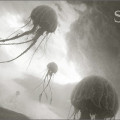
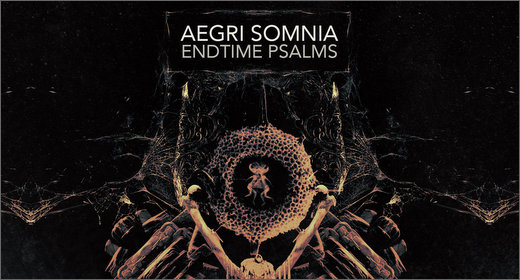
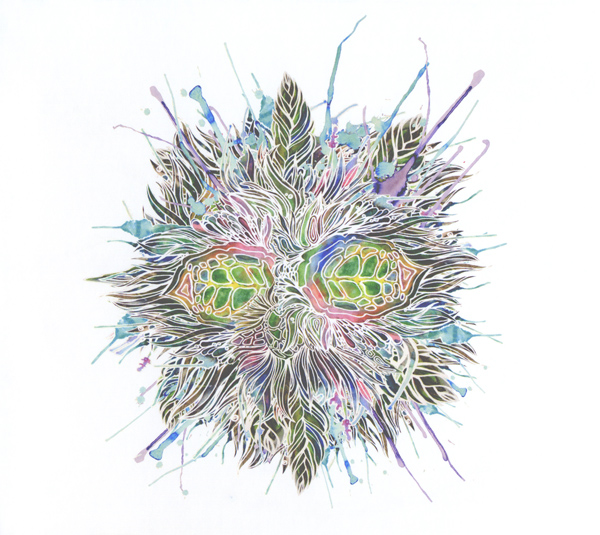
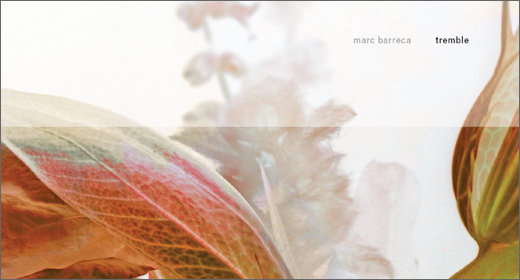
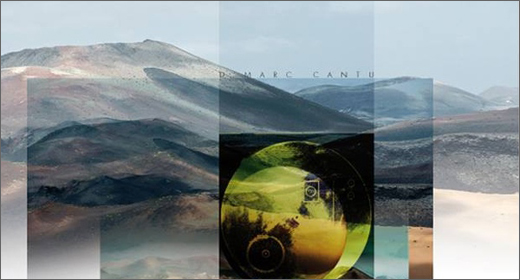


![Romanowitch :: A critical season substitute (glitch.cool) — [concise]](https://igloomag.com/wp/wp-content/uploads/2025/03/romanowitch-a-critical-season-substitute_tape_feat-75x75.jpg)







